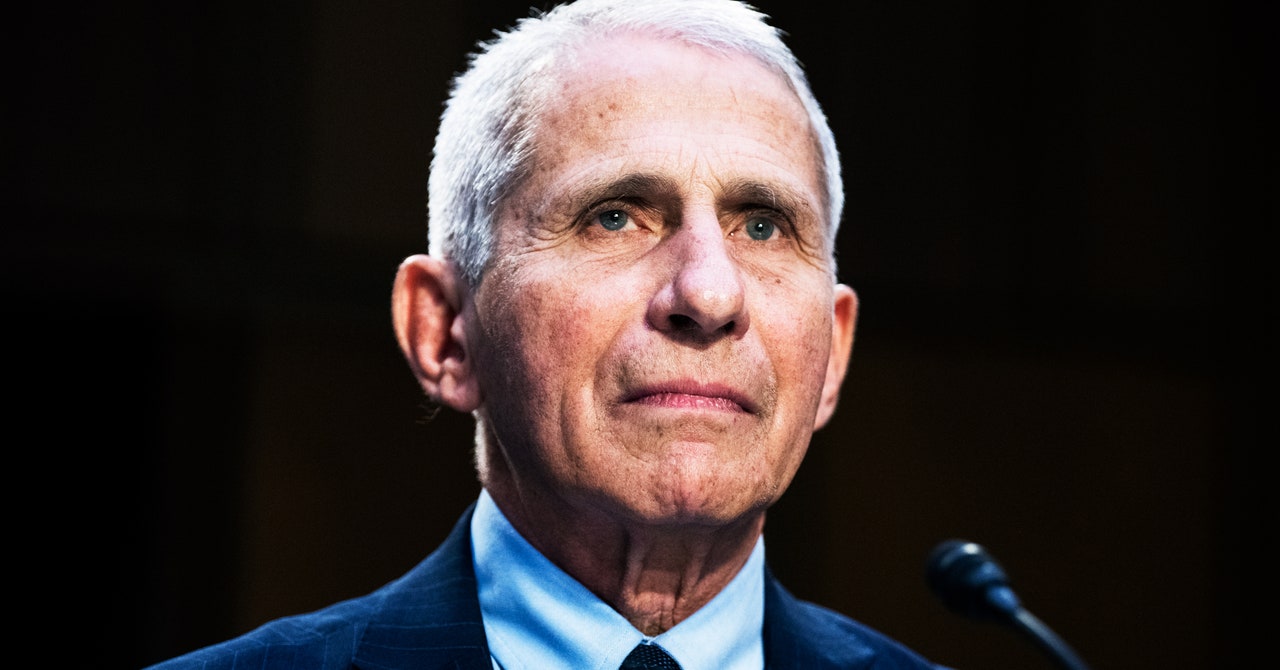
Beginning in 2023, we won’t have Dr. Anthony Fauci to kick around any more. After 38 years in government service, the director of the US National Institute of Allergy and Infectious Diseases, as well as the White House’s chief medical advisor, is leaving his jobs—don’t say “retiring”—and, at 82, is headed to his next adventure.
It’s hard to imagine anything more adventurous than what he has been through in the past three pandemic years. The country—well, most of it—sympathized with his anguish as he tried to decode the ever-shifting challenges of Covid while his former White House boss, at various times, named the infection with a racial slur, claimed it was no worse than flu (it’s killed a million people in the US alone so far), and suggested it might be treated with a good injection of bleach. Fauci’s role as the highly qualified, avuncular explainer-in-chief heading a critical research lab won him many fans, but as the pandemic progressed, it also made him a target for those who sniffed conspiracy or simply got sick of following guidelines that might save their lives.
On the eve of Fauci’s departure from government, the nation finds itself in a strange place. We’ve pretty much declared ourselves done with Covid. But Covid isn’t done with us. It killed 2,504 Americans last week, and many thousands are living with the debilitating misery of long Covid. Yet those who wear masks at indoor gatherings—like Fauci—are mocked. Fauci himself got Covid earlier this year, when he briefly let his guard down and lowered his mask.
For my fourth interview with Dr. Fauci (you can read the previous ones here, here, and here), I decided to ask him about how he regards the psychology of denial—and also to get a glimpse of what we have in store for us this winter. The interview has been edited for length and clarity.
Steven Levy: Let’s talk about this winter. Do you expect those two new Covid variants BQ.1 and BQ1.1—they don’t really trip off the tongue—to dominate very soon?
Anthony Fauci: It looks like it’s going in that direction. They went from a fraction of a fraction, to a few, to now double digits. I do expect that, as we’ve seen in other countries, those variants will likely play a role. But they’re not the only ones. You know, there’s BA4.6, BF.7. And then there’s the others that aren’t even here yet that are lingering in other countries.
Those variants are troublesome, right?
Yes, they’re different, somewhat evasive. They elude some of the monoclonal antibodies that have been used effectively. But if you look at the relationship between them and the currently dominant variations, they are subdivisions of that lineage. So although the vaccine isn’t precisely matched to the variant, I believe there’ll be enough cross-reactivity not to create a very serious issue among those who’ve been vaccinated, and particularly those who’ve been vaccinated and boosted.


